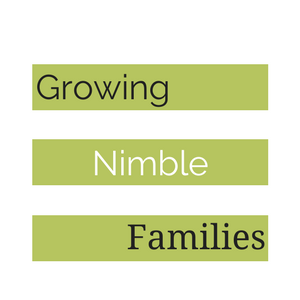| This is a guest post by Tonya Wright. If you want to guest post on this blog, check out the guidelines here. |
10 Questions to Ask When Choosing a Book for Your Preschooler
Unless you are looking for a specific book, walking into the local bookstore or neighborhood library can be overwhelming if you have no idea where to begin! Preschoolers are vastly different from the toddlers they once were. Younger children are quite happy with books that have simplistic illustrations and minimal text. Somewhere around the age of three, and sometimes around the age of two-and-a-half, children began to crave more sophisticated literacy experiences. Here are a few questions to ask yourself as you are wandering aimlessly amid rows and rows of books!
1. Are the illustrations appropriate, engaging, and relevant? Young children are understandably drawn to pictures before text, so choose books that have photographs or illustrations that depict emotion and/or activity. See if the illustrations reflect and enhance the text. Also, ensure that the illustrations are appropriate and reflect the values you want to instill. For example, some of the Curious George books, depict smoking. That is not to say that you have to avoid Curious George books, (I happen to like the little guy) but whenever you select a book, you should be informed about what you are purchasing.
2. Are the text and the illustrations bias-free? Look for books that fairly depict children of all races, ethnic backgrounds, and abilities. Select books that do not perpetuate gender stereotypes. For example, in books about community helpers are the women depicted to be teachers and nurses while the men are depicted as fireMEN and policeMEN?
3. Is the text appropriate for my child’s developmental level? You want to choose books that have words that preschoolers can understand, but you also want to provide children with opportunities to learn new words as well. Preschoolers also like text that is predictable, rhythmic, and easy to memorize. And don’t be afraid to choose books that have NO WORDS! Wordless books offer great opportunities to create new stories over and over again!
4. Does the story inspire the imagination? Young children enjoy pretending; imaginary play is an important part of cognitive growth and development. Choose books that encourage children to think or imagine beyond the pages of the book.
5. Do you as the adult find the book interesting? As adults we often unconsciously pass on our own fears, likes, and dislikes onto children. Sometimes it is ok to choose books that YOU enjoyed as a child. Passing on your excitement and love for reading is a good thing!
6. Will your child be interested in the subject? Preschoolers enjoy books that describe experiences to which they can relate or ideas that they can imagine. Books about going to school, visiting relatives, or taking trips are relatable subjects for many young children. If your child has a particular interest, such as cars or horses, choose books on that subject. In addition, use books to expose your child to new subjects that they might not otherwise experience!
7. Does the book encourage interaction? Although not every book will be interactive, it’s a good idea to choose some that are. Books that encourage your child to follow directions, search for a hidden object, open/close flaps, or perform other actions help children to understand that reading is not a passive activity!
8. What is the purpose of the book? Select a variety of books that serve a variety of purposes. Some books are humorous, others are meant to teach a concept or moral lesson. Other books are written to give children information about various subjects and other books help.
9. Is this a non-fiction book, and if so, is it accurate? Preschoolers have a funny little obsession with they word WHY! Young children are natural scientists who have an innate desire to learn about the world around them. Encourage this trait by selecting books that will expand children’s knowledge about their world. When choosing non-fiction books such as biographies or informational books, do your best to ensure that you are selecting books that are easily understandable and accurate.
10. Will my child want to read this book more than once? Think of choosing a book as an investment. When you invest in a new car or a new couch, you plan on using those items over and over again. Think of a book the same way! When your preschooler asks to read his favorite book for the 100th time, realize that children learn with repeated exposure. So choose books that you and your child will want to read over and over.
Find an example of each book over at Tonya’s blog
Tonya Wright has over twenty years of experience in the field of early childhood education. She has taught preschool, pre-kindergarten, and kindergarten. She has professional interests in Reggio Emilia, the project approach and the RIE approach and has a deep passion for early learning with a special interest in language and literacy. Tonya’s undergraduate work is in Early Childhood Education and Psychology and received her Masters Degree in Educational Technology. Tonya has been published in various national, state, and local teacher magazines and newsletters. She is a member of the Honor Society of Phi Kappa Phi and the National Association for the Education of Young Children (NAEYC). Recently Tonya began her Room to Grow blog and she also writes for Literacy Connections.











Very well written!! I couldn’t have said it better myself.